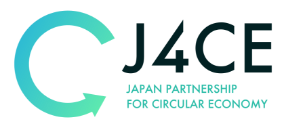FPCO Method Circular Recycling
[Company / organization] FP Corporation
Time started
The reason why we started recycling food trays is that in the 1980s, there was a non-buying movement in the United States for the negative impact on the environment of plastic food containers of restaurant chains. Due to concerns that similar criticisms could occur in Japan, we decided to voluntarily collect and recycle in 1990 to protect our company.
Members, their roles, and reason for cooperation
"Four-Party Collaborative Recycling" By incorporating stakeholders such as consumers, supermarkets, and packaging material wholesalers into the supply chain of our main business, we were able to build a cyclical value chain and create a sustainable business model. The most important thing is that it cannot be achieved without the cooperation of consumers.
The point of a sustainable business model is to efficiently collect products by venous distribution using the return flight of trucks for delivery.
In addition, it is necessary to perform sorting work in advance to recycle used trays, and we are actively promoting the employment of people with disabilities in the mainstream of this recycling business, and we are able to utilize diverse human resources. Currently, 362 people are active, and the employment rate for people with disabilities is 12.7%, which is high compared to the statutory employment rate of 2.3%.
business model
The "FPCO Method recycling", which started in 1990 with over-the-counter collection at six supermarkets, consists of three processes: collection, recycling, and recycling. The key to success in the recycling business is that the two processes of "collection of the entrance" and "recommercialization of the exit" are well designed. There are major features in the collection method that makes effective use of the return flight truck for the delivery of in-house products and the recycling method of "tray to tray" that recycles horizontally to the original shape (tray), and the used container is effective as a resource. It is well established as a social infrastructure to use.
Achievements and goals
Currently, eco-products made from recycled materials made at our recycling center account for 45% of the total sales of products collected at approximately 9,800 bases nationwide, and all APET and OPET containers are being switched to eco-products. It has been completed.
Annual sales of the PSP container "Eco Tray" and the transparent container "Eco APET / Eco OPET" exceed 62.2 billion yen.
Taking the opportunity of increasing momentum for carbon neutrality in society as a whole and changes in the consciousness of customers and general consumers who demand environmentally conscious efforts from companies, our own eco-products are compared with virgin products derived from petrochemicals in the product life cycle. Since CO2 emissions are -30%, we have achieved an annual CO2 emission reduction effect of approximately 160,000 tons in the fiscal year ending March 2020. In the fiscal year ending March 2023, the amount of CO2 emissions reduced by selling eco-friendly products will be balanced with the amount of CO2 emissions in the production sector, and in the fiscal year ending March 2025, the same reduction will be applied to the entire company (production, logistics, office sector). On February 1, 2021, we announced the "Carbon Offset Declaration for Recycling" that balances CO2 emissions.
Reference URL
・FPCO Method Circular Recycling
https://www.fpco.jp/en/en_esg/en_environmenteffort/en_fpco_recycle.html
- Recycle
- Renewable
- Design
- Production
- Distribution
- Utilisation
- End-of-use
- Plastics
- Individual company
- Company in same business category
- Company in different category.
- Local government
- Currently under implementation (already in business)
- Case/initiative by individual company


